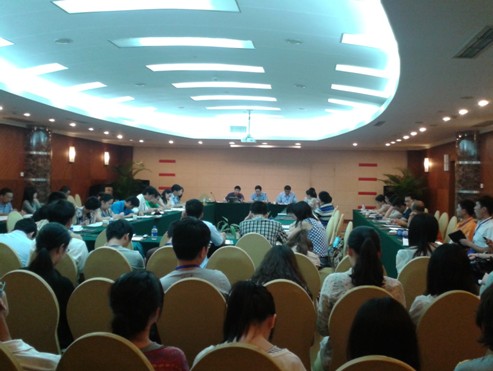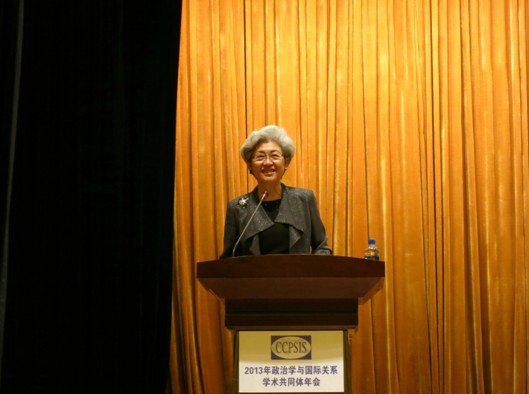From June 6thto 7th, the 6thAnnual Meeting of Tsinghua Academic Community on Political Science and International Relations was held in Beijing by the Institute of Contemporary International Relations. The theme is “power, system and reform”. There were 101 keynote speeches, round-table conferences and discussions during the two days. More than one thousand scholars, experts, officials and students attended the meeting. They are from more than 80 universities, governments, think tanks, embassies and consulates in China at home and abroad, including Harvard University, Massachusetts Institute of Technology University, the University of Chicago, Princeton University, John Hopkins University, Indiana University, University of Toronto, University of British Columbia, McGill University, London School of Economics, University of London, Moscow State University, Ritsumeikan University of Japan, Monash University of Australia, University of New South Wales, National University of Singapore, South Korea's National Defence Research Institute, and National Defense University of Pakistan.
Delegated by Prof. Li Qing, secretary general of GRIIS, Prof. Chen Hanxi, Cheng Yonglin and Song Haixiao, researchers of GRIIS, attended the meeting and organized the round-table conferences and discussions under the topics of “Rising and hegemony countries: difficulties that China and the US face when building new big power relations”, “The status and influence of Indian Ocean in China’s maritime strategy”, “Big power relations and global governance” and so on. They gave keynote speeches and participated in the discussion of other groups.

The three researchers promoted the GRIIS of GDUFS to the colleagues in the circle of international relations study and reported their research achievements, which laid foundation to the future academic cooperation. Prof. Chen Hanxi visited Tsinghua-Carnegie Center for Global Policy and talked with Paul Hnle, director of the Center. He introduced the GRIIS. Paul Hnle indicated the intention to promote cooperation between the two institutes and would like to visit GRIIS in the future.
Fu Ying, director of Foreign Affairs Committee of National People's Congress, gave a speech on the opening ceremony on the topic of “Responsibility of Chinese Think Tanks in the Era”. She pointed out three main duties of the think tanks when serving for the foreign affairs: first, think tank should build positive relations with policy-making institutes with practical and realistic international programs; second, think tank should focus on the major issues that China faces on the international stage; third, think tank should stick to the public property and social responsibility and enhance the ability and consciousness to provide public products to China and even the international community. She suggested Chinese think tank introduce China’s code of conduct and principles to the world, which is good for China to carry out international responsibilities and good for the think tank to build its unique international status and image. It needs patience and endurance to develop science of international relations with Chinese characteristics and build great-power diplomacy theory of China on the basis of Chinese culture, history and politics. Her speech provided guidance to the work of GRIIS.

Fu Ying, director of Foreign Affairs Committee of National People's Congress

